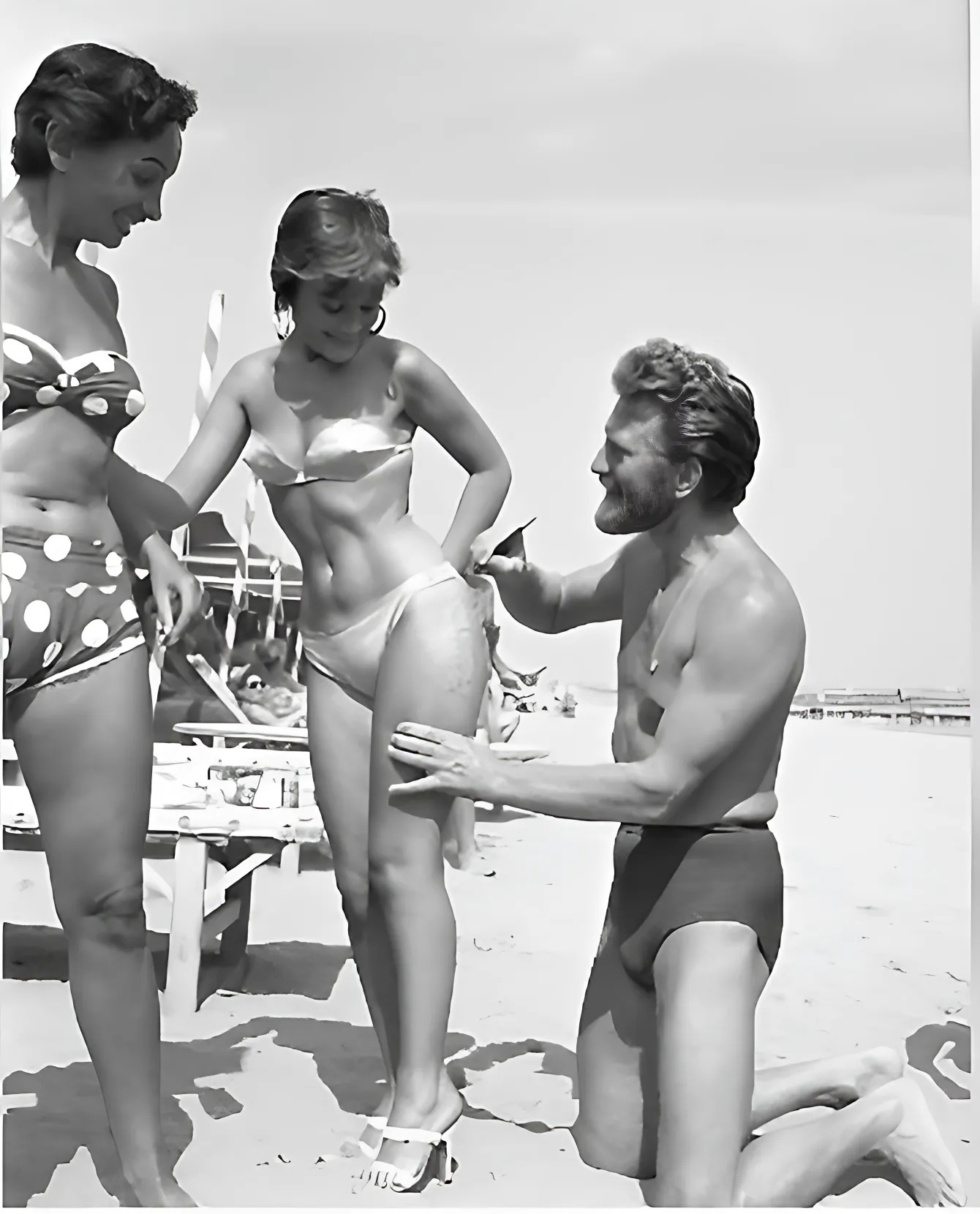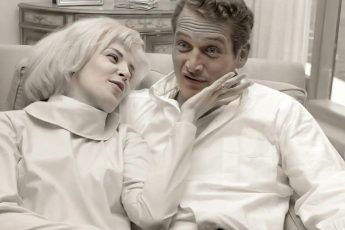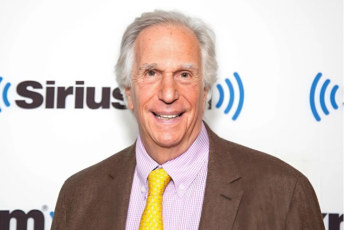Kirk Douglas, born on 9 December 1916 in Amsterdam, New York, is one of Hollywood’s most celebrated actors whose career spans more than six decades. Known for his gruff good looks, distinctive dimpled chin and intense screen presence, Douglas became a towering figure during the golden age of cinema. His path to fame was anything but conventional, however, and his reputation as Hollywood’s ‘Casanova’ was equally legendary.
Douglas was born into a family of impoverished Jewish immigrants from Belarus, and his early life was spent in harsh conditions. He worked part-time to feed his family and dreamed of a career as an actor. After receiving a scholarship to the American Academy of Dramatic Arts in New York, Douglas’ talent began to unfold, beginning his amazing rise.
Douglas made his Broadway debut in 1941, but his burgeoning career was interrupted by World War II. He enlisted in the US Navy, where he served as a liaison officer in anti-submarine defence. After the war, he returned to New York and resumed his acting career.

Kirk Douglas and Rita Hayworth
A chance recommendation from actress Lauren Bacall, a former classmate, led him to his first role in The Strange Love of Martha Ivers (1946). This role marked the beginning of a fruitful film career, Douglas quickly became known for his energy and charisma.
Kirk Douglas rose to fame in the 1950s, gaining a reputation as a versatile actor who could play both tough guy roles and more complex, emotional characters. His breakthrough role came in the 1949 film The Champ, where he played a ruthless boxer determined to reach the top. The role earned him his first Academy Award nomination for Best Actor and established him as a leading Hollywood actor.
Throughout the 1950s and 1960s, Douglas starred in a number of successful films, many of which are now considered classics. His role as Vincent Van Gogh in Lust for Life (1956) earned him another Oscar nomination, and his performance was noted for its depth and emotional intensity. Douglas’ ability to add complexity to his characters became a hallmark of his acting.
Among the most notable films of this era are ‘20,000 Leagues Under the Sea’ (1954), where he played a bold and adventurous Ned Land, ‘Paths of Glory’ (1957), a powerful anti-war film directed by Stanley Kubrick, and ‘Spartacus’ (1960), perhaps his most famous role.
In Spartacus, Douglas played the titular character, a slave who leads a rebellion against the Roman Empire. The film was a huge success and is credited with helping to end the blacklist in Hollywood by hiring blacklisted screenwriter Dalton Trumbo.
Douglas was not only an actor but also a producer, using his influence to support projects he believed in. His role in the film Spartacus as both star and producer is a prime example of his willingness to take risks for creative control. The move solidified his position as one of Hollywood’s most influential figures, both in front of and behind the camera.

While Douglas’ film career flourished, his personal life was the subject of much gossip. He was often referred to as ‘Casanova,’ a label that he not only did not accept, but completely rejected.
Throughout his life, Douglas was involved with numerous actresses and women in Hollywood, which gave him a reputation as a ladies’ man. Douglas married Diana Dill in 1943 and they had two sons, Michael and Joel, before divorcing in 1951. His marriage did not help quell rumours of his affairs with co-stars and other women in Hollywood.
His relationships with actresses such as Marlene Dietrich, Joan Crawford and Rita Hayworth made tabloid headlines. His charm and raw masculinity made him irresistible to many, and he played on this reputation with his confident, sometimes brash, public persona.
Although his romances were well documented, Douglas eventually found lasting love with Ann Bewdens, whom he married in 1954. Their marriage, which lasted until his death in 2020, defied Hollywood norms, and they remained together for more than six decades. In his autobiography, Douglas admitted to infidelity but credited Anna with helping to stabilise his life and bring him peace.
Over the years, Douglas evolved from a leading actor to a respected elder statesman in Hollywood. He continued to work through the 1980s and 1990s, often playing supporting roles or appearing in television films. In 1991, he suffered a stroke that affected his speech, but that didn’t stop him from continuing to film and remain active in the industry.
Douglas’ contributions to Hollywood go far beyond his acting roles. He is credited with helping to destroy Hollywood’s blacklist, as well as advocating for greater creative freedom for actors and directors. He received numerous awards during his career, including an honorary Academy Award in 1996 for ‘50 years of creative and moral service to the film community.’

Apart from his acting career, Douglas was also a philanthropist and writer. He donated millions to various charities, especially in the fields of education and health. His autobiography, The Rag Man’s Son, became a bestseller and gave insight into his life and career, including his well-publicised novels and personal problems.
Kirk Douglas’ Hollywood career has been marked by iconic performances, groundbreaking achievements and an unconventional personality that has made him a true legend. His reputation as ‘Casanova’ only added to his mystique, but his lasting legacy is his contribution to cinema and his role in shaping the industry.
Douglas left an indelible mark on Hollywood that continues to influence generations of actors and filmmakers, from his portrayal of complex, flawed characters to his work behind the scenes. His death in 2020 at the age of 103 marked the end of an era, but his influence remains as strong as ever.





















